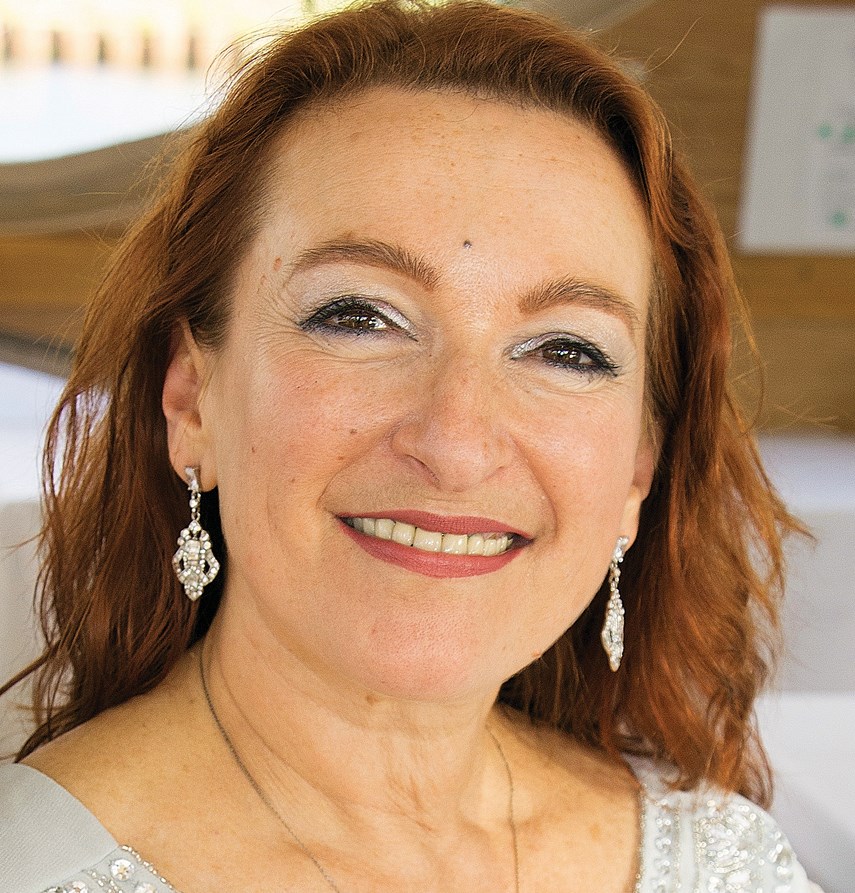The 33rd Annual JCC Jewish Book Festival, Nov. 25–30, Jewish Community Centre of Greater Vancouver and other Lower Mainland venues. For more information visit jewishbookfestival.ca.
You can define Jewish literature with two captains: Captain America, the hero who defends values that will live forever and Captain John Yossarian, Catch-22’s coward determined to live forever or die in the attempt.
Yes, you could define Jewish literature that way, but it would be a colossal mistake. Because, with all due respect to Jack Kirby and Joseph Heller, how could we possibly discuss Jewish literature without Tevye, Portnoy and Duddy Kravitz; not to mention Superman, created by Siegel and Schuster, and Kavalier and Clay, inspired by Siegel and Schuster?
Asked what makes certain books Jewish, festival director Dana Camil Hewitt offers a favourite quote: “We are the people of the book, therefore every book is Jewish.”
She laughs. Hewitt doesn’t really believe that, but it’s a way of acknowledging the challenge of defining a culture.
In preparing this year’s Jewish Book Festival, Hewitt found themes that were thought-provoking, controversial, and Jewish.
“A lot of the North American Jewish authors have written novels this year in which Israel is almost a character,” she says.
The festival kicks off with a discussion of Alison Pick’s book Strangers with the Same Dream at the Norman & Annette Rothstein Theatre in Vancouver.
Pick’s book focuses on Jewish pioneers trying to form a collective community, a kibbutz, in 1921 (or 5681, depending on which calendar you prefer). The story is told from the other side of a grave by a narrator wrongfully denied shiva and burial.
“I go backward,” the narrator tells us, “as ghosts love to do.”
The novel opens with a quote from Israeli poet Yehuda Amichai, who writes: “Spilled blood is not the roots of trees but it’s the closest thing to roots we have.”
The quote is appropriate for both the book and the festival.
“That’s a whole new concept that exists now, historical trauma, or intergenerational trauma,” Hewitt explains.
The fest moves to Congregation Har El on Taylor Way in West Vancouver for an event that features Emily Carr alum Miriam Libicki.
Libicki is the author/artist behind Toward a Hot Jew: the Israeli Soldier as Fetish Object. The collection of illustrated essays delves into stereotypes such as the perception of the North American Jew as: “curiously unsexy, especially in Jewish eyes.”
The 128-page book is complete with detailed illustrations that are often entirely realistic except for the eyes, which sometimes bulge to near-Margaret Keane proportions.
Libicki is set to be joined by author Paul Shore.
While Libicki, who spent time in Israel’s military, is an obvious choice for the festival, Paul Shore’s account of his days in France might seem puzzling.
Some authors may stay away from Jewish subjects completely, Hewitt says.
But even when it’s not their focus, “it permeates, it manifests in some manner, more often than not,” she says.
Shore is the author of Uncorked: My Year in Provence Studying Petanque, Discovering Chagall, Drinking Pastis, and Mangling French.
Shore describes “the smoke from the men’s cigarettes mixing with the sweet smell of burning vineyard clippings . . .” and his need to immerse himself in the city’s culture and history and as he does a brand of distinctly Jewish humour emerges.
His primary focus is the game of petanque, the rules of which “would require an anthology so detailed and so tedious to read, not to mention so difficult to obtain agreement on from even just a minyan of French citizens, that I don’t dare start down that path.”
It’s a “purely cultural” festival rather than a religious one, Hewitt emphasizes. But that doesn’t mean questions of religion can’t be explored.
The festival closes with actor Stephen Tobolowsky discussing his book My Adventure with God.
There are no three words that engender as much rage among the reading public as “celebrity turned author” but Tobolowsky, best known as the insurance salesman in Groundhog Day (Bing!) displays depth and wit in a chronicle of faith that likens prayer to an attempt to contact extraterrestrial life.
“Even if the heavens are empty, a prayer provides its own echo,” he writes.
His book touches on childhood innocence and religious instruction (“if playing right field was part of the Sabbath, I was more than happy to honour it.”)
Taken together, the books are a reflection of the world, Hewitt says.
And as Alison Pick’s narrator notes, readers are “my own chosen people.”



